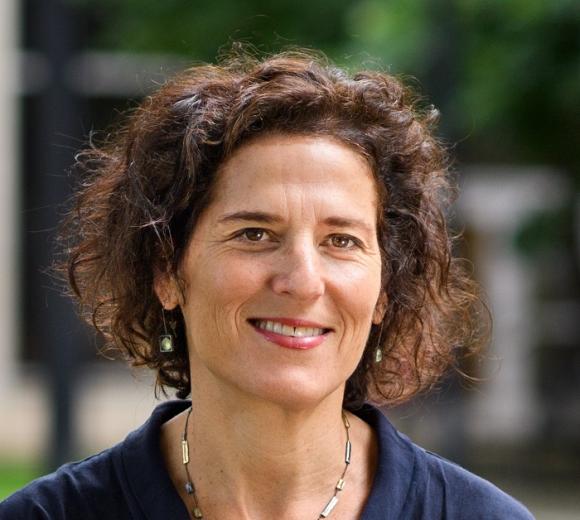
Among her projects this year, Professor Ellen Goodman is studying algorithms that affect the City of Pittsburgh.
Rutgers Law Professor Ellen P. Goodman is the director of the Rutgers Institute for Information Policy & Law (RIIPL), and an expert on the use of algorithms in our tech economy and how they affect communities, including justice issues.
This school year, Goodman is continuing her work on researching algorithms being used by different localities, including her work as a member of the Pittsburgh Algorithmic Accountability Task Force, which is coming up with guidance for the City of Pittsburgh.
She also is working with scholars across Rutgers campuses as a member of the steering committee of the Critical AI Initiative, which looks at the social implications of AI deployment. Assisting her with research, are Kayvon Paul RLAW ‘23, who has worked as a lobbyist in Trenton, and former student Timon Cline RLAW ‘20.
“People don’t realize how much influence algorithms have on our lives,” she told Camden Magazine last year. “Many of the decisions that people have made in the past are being made by algorithms.”
Goodman noted that decisions made by algorithms are often tainted with bias, “Concerns about fairness and equity arise when the algorithms have been trained on biased data,” Goodman said. “These algorithms may make recommendations to police departments or housing departments or social services that are themselves biased and disadvantage certain populations.”
Previous work she’s done has worked to make algorithmic information more transparent and available to the public. Last year, working with MuckRock, Goodman helped launch an open database of algorithms used in city, county, states, and other public entities across the United States. It was the result of a yearlong reporting and research project conducted by (RIIPL).
“This is the beginning of a fantastic resource for tech journalists, scholars, city leaders, watchdogs, and citizens who are concerned about the rapid spread of automatic decision systems and AI deployments in their governments,” she said last year. “Governments are using algorithms for policing or sentencing, for housing the homeless, and for providing family services among many other applications. It’s important that the public has access to vendor contracts and be able to peer inside black box applications in order to understand them and hold them accountable.”
Algorithmic Justice is also taught as a course. Last year Co-Dean David Lopez and Carolyn Young, Associate Dean for Distance Learning/Associate Director of the Law Library, co-taught a course on the subject in Newark.
Goodman said this month she hopes the work she is doing at Rutgers will contribute to a more just world, “Algorithms are used to allocate many essential services and opportunities and they are built on big data and AI,” she said. “Rutgers and Rutgers Law are working to build a tech curriculum, critical studies, and community service that contributes to the responsible and just use of data and computation in the world.”